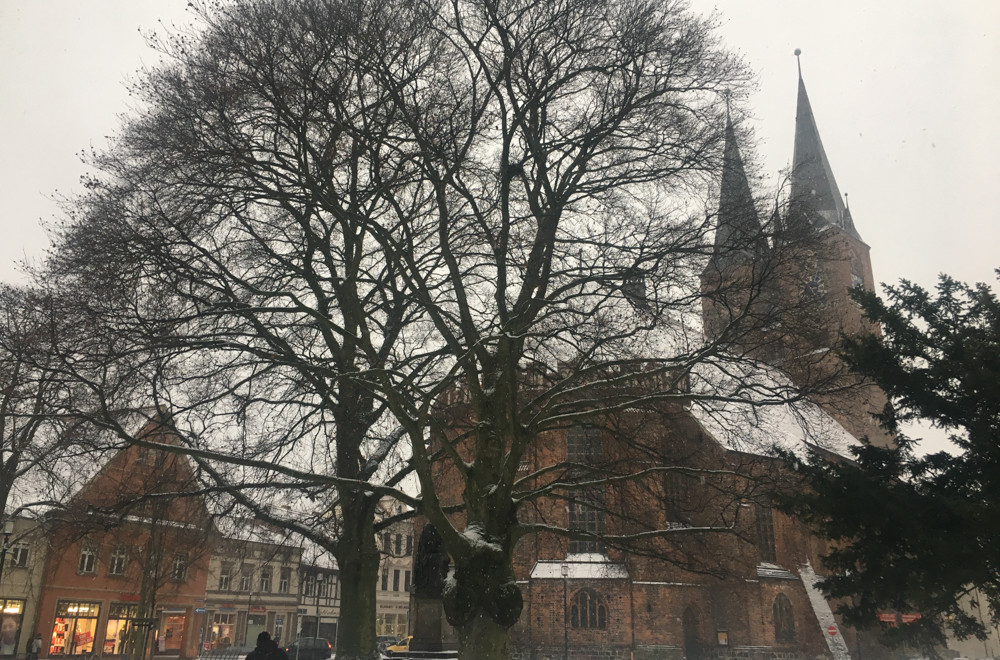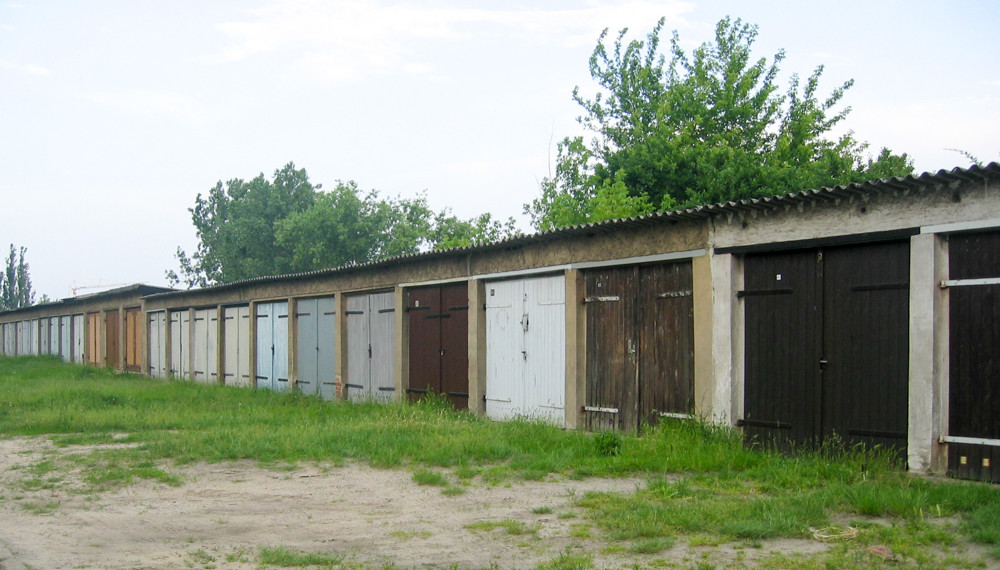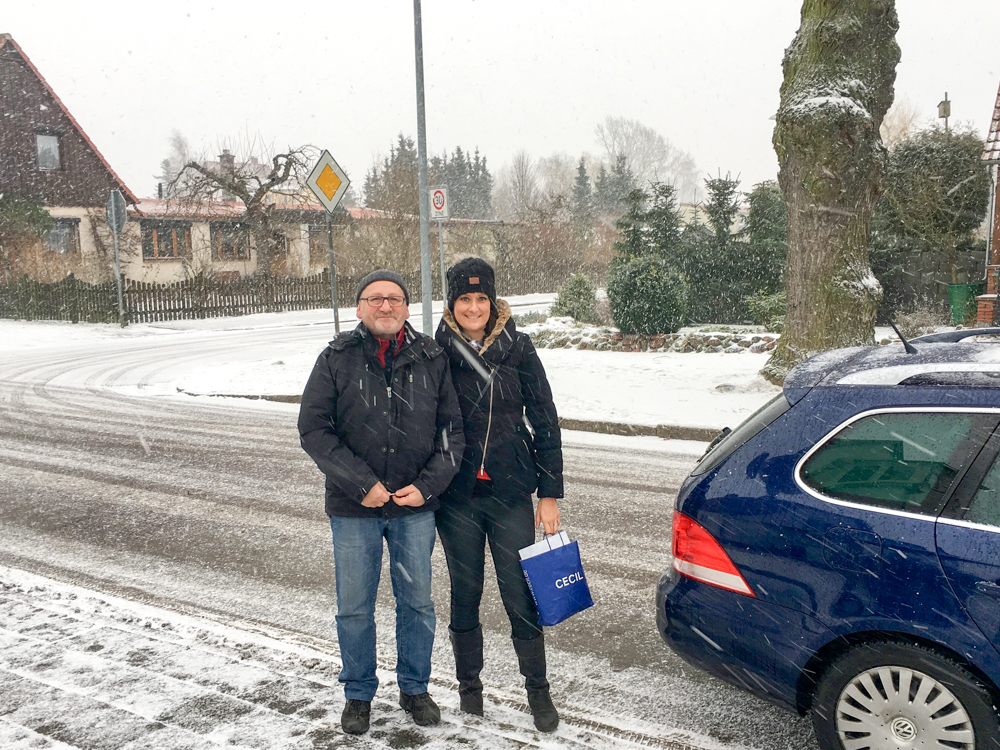Revisiting My Roots – Part 1

1991. Two years after the fall of the Berlin Wall, I visited the former East Germany for the first time. A wide-eyed twelve-year-old, it was like stepping back in time. Rows of ugly, identical high-rises lined the streets, coal covered and partially condemned. Smoke spewing Wartburgs and Trubants ruled the roads, and Westerners hurled abuse at the newly-free sponges on their economy. We were headed for the small town of Stendal, an hour west of Berlin. The place in the East my grandma had escaped forty years earlier.
I’ve returned to Stendal several times since 1991, and each time, nothing changed. The intricate facades of the old town may have been repainted and renewed, but stark reminders of the Soviet Era remained. Destitute high-rises still swayed against the grey sky. Rows of abandoned garages speckled the outskirts and, even many years later the cost of living and wages hung far lower than those in the west. Lost in their not-so new-found freedom, the society seemed to teeter between the comforting remnants of a communist ideal and a new bid to catch up to the western world.
So little changed in Stendal over the years, that each time we returned, I pitied Colby for being subjected to its dullness. Beyond the Roland statue (an ironic Medieval symbol of freedom), the Marie Church and the pretty town gates, Stendal offered little for visitors. And the extent of our sightseeing centred around the place my grandmother had grown up, the house she had lived in as a child . . . on the corner where she’d watched the endless lines of Jews being marched to their deaths.
And at the hands of my aging aunt, the climax of our tour came at the Ein Euro store. The concept of getting something new . . . unused . . . for only one euro was the most novel thing to arrive in town since the end of the war.
Only twenty-five years after my first visit, had things finally changed to the point that evidence of the Soviet era was starting to disappear. We rolled through the town gates in late December and new life had been breathed into the tired streets. The cost of living had begun to resemble something closer to that in the former West, (almost to the disappointment of these two tight-arse travellers) and the sadness which hung in the air had started to lift. This time there was no chance of becoming imprisoned in a junk shop, extolling the virtues of useless crap . . . because my posse of aging relatives had also thinned.
My million-mile-an-hour uncle had slowed to the point that I could almost understand every word of his motor-paced German . . . and I no longer clung to the door handle as he slalomed through the streets toward our lunch date. “This is probably the last time you’ll come to Stendal,” he shrugged. I concentrated hard, painfully aware that even the magic of the falling snow couldn’t soften his words. “ . . . because next time you won’t have anyone left here.” His change of pace had been the only hint that this full-of-life uncle had been given only another five months to live.
I sifted through my limited German for a response, but was lost for words . . . even in English. We’d sat in his cosy lounge the night before as he explained his prognosis in a tone that was neither cold, nor filled with emotion. Simply an explanation from a place of acceptance. From a man who was filled with positivity and the will to make the most of every day he was given. “For all the places we wanted to go,” his wife shrugged, equally at peace. “There was always tomorrow . . . and now it’s too late.”
Life was suddenly so finite.
The last time I’d left Stendal I’d swallowed the lump in my throat as I said goodbye to my great aunt, my grandma’s last remaining sister. But this time there was more than a lump to swallow. Our plans for the afternoon could wait. All I wanted was to listen to my aunt tell me stories that had been buried with my grandma . . . before it was ‘too late.’ At sixteen, she had never said goodbye to her family. It had been too dangerous. She had simply packed a small bag and disappeared into the night. “Oh no, I wasn’t worried,” my aunt waved a crooked finger, a twinkle crossing her eye. “She had a boyfriend, I knew exactly what she was up to!”
When we finally drove south through the driving rain, it was easy to pick the point where the road turned from a potholed river to a well drained motorway. The abandoned buildings between which the barbed wire would have been strung. The supposedly invisible line between east and west and the subtle reminders of ghosts of the past. Subtle reminders of how precious our freedom really is.
It’s not so easy however, to pick the point at which our lives will change forever. The point when tomorrow suddenly becomes too late. At sixteen, my grandmother recognised this, and had taken her chances. Life may not have turned out as she planned, yet I am eternally grateful she had the courage to chase her dreams, whatever they may have been.
Perhaps I will return to Stendal, perhaps I won’t. But for now I’m so thankful to have been born into a free world, and to be given this opportunity to travel and experience . . . before it’s too late.




Wonderful, Kate. I was right there with you.
A timely reminder to add some elderly family members to my list of people to see before the year is out.
Thank you.
Thanks Natasha. Yes! They hold so much history which sadly won’t be around forever.